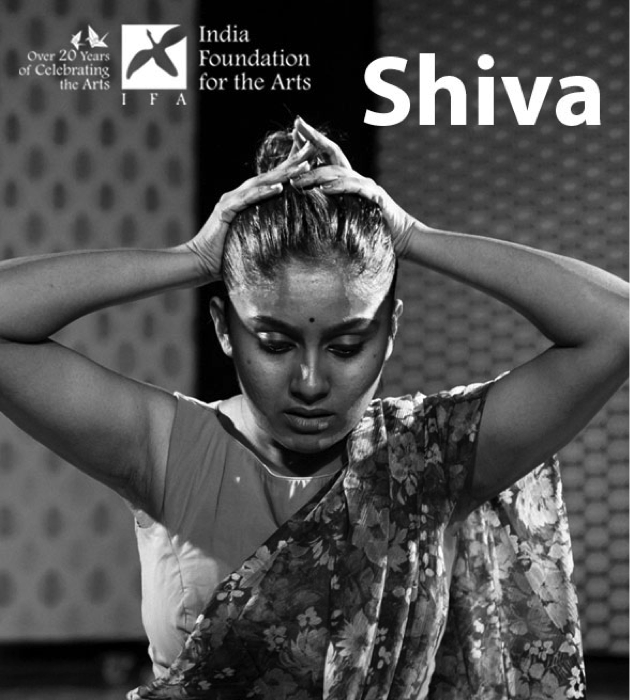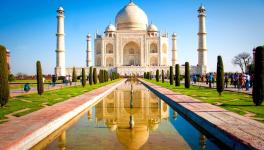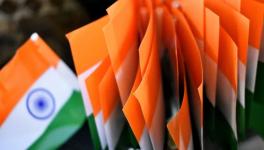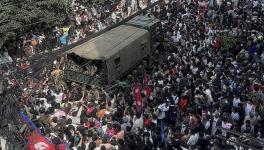Play about Queer Identity Cancelled, As VHP and Right Wing Organisations Protest

Image courtesy: Jagriti Theater
Staging of a play titled Shiva that explores queer identities using dance, music and theatre had to be cancelled by Jagriti Theatre, following threats by Hindu Right-wing organisations led by Vishwa Hindu Parishad (VHP). The queer community in the country is preparing for a struggle with the social and cultural prejudices after its victory in the legal battle on September 6, 2018. At such a time, this incident affirms that alternative voices and dissenting voices are under threat. The play, directed by Dayasindhu Sakrepatna, was to be staged at Jagriti Theare in Bengaluru on October 13 and 14, 2018. The self-proclaimed saviours of Hinduism, however, have decided and declared that the play is offensive.
Arundhati Raja, an artistic director of Jagriti Theatre told The Hindu, “Three right-wing groups turned up at the theatre on Saturday morning and declared that they found the play offensive. When asked if any of them had watched the play, they said they hadn't, but that they found the name offensive. They threatened to create trouble if we went ahead with the shows as scheduled.”
Also read: September 6: A Gay Day for the LGBTQ Community
Shiva is a choreography of eight dance pieces, carnatic music and poetry, and is based on Dayasindhu’s personal struggles with his own sexuality. India Foundation for the Arts (IFA), which was involved in the production of the play, describes it as ‘the story of a young man, a poet, coming out to his mother, through a series of letters and poems that express fear, conviction, choice and most importantly a deep longing for his mother’s acceptance'. Each of these four themes branch out into other short stories, which are woven into the larger narrative. The play raises questions and triggers dialogues on alternative identities, relationships, gender, sexuality, masculinity, peer pressure and mob violence. The attack on this play by the Hindu fundamentalist organisations, yet again, brings into light the depleting tolerance in the country for dialogue, and as the director calls it, “resistance to queer identity.”
The task of the Hindu fundamentalist organisation
The Hindu fundamentalist organisations in the country have been function on the premise that Hinduism is under threat. To them, this threat is not only by – what they believe are the – “foreign” religions, but also by democratic discourses of rights and freedom. These organisations thus have assumed the task of waging a war against other religions in the country, while curbing all the constitutionally granted rights and freedoms, by redefining them in their own terms. Since the Right-wing Bharatiya Janata Party (BJP) has come to power at the Centre in 2014, the fundamentalist organisations like VHP and RSS have been terrorising minority communities and various other dissenting voices. Writing about the growth of Hindu extremism, Mandakini Gahlot, a senior journalist, notes that the “Hindu nationalist movement is attempting to hijack our religious identity to serve its own vision, ignoring, and often attacking, any opposing viewpoint.”
Also see: Girish Karnad: “No one has the right to curb our freedom of expression”
The Hindutva organisations – since their inception in the country – have been doing this as what Gahlot explained, by projecting their sentiments as the sentiments of entire Hindu population in the country. The attack on Shiva is exactly such an attack. Speaking to The Hindu, the director noted, “It was so easy to suppress the voice of an artist. Some people took offence, and the play did not happen. It should leave us worried.” It indeed is worrisome. These extremist forces are increasingly assuming authority over what can be said, what can be seen and what can be done. Anyone, a journalist, an artist, a writer or a rationalist who attempts to give a voice to the oppressed in the country are either silenced by disrupting such attempts or by killing, as in the cases of Narendra Dabholkar, Govind Pansare, M M Kalburgi and Gauri Lankesh.
Claiming that a play about queer identities cannot be named after the Hindu God, just like what it did in the case of the film Padmavat, these fringe elements showed no interest in the content of the play. As already mentioned, the main problem that the VHP had was that a play about queer identities was called ‘Shiva’. This definitely hurts the sentiments of the VHP which believes that “homosexuality is an imported disease", which requires “treatment”, and is against Indian culture and values.
Also read: Karni Sena’s Attack on Padmavati
“Resistance to the queer identity”
The Supreme Court of India on September 6, 2018, in its historic verdict, decriminalised homosexuality by striking down the draconian law, Section 377 of Indian Penal Code (IPC) which criminalised homosexuality. The queer community in the country won its legal battle after a two decades long legal struggle. This victory, however, is not the end of the struggle, rather it is the beginning of a new struggle. Shiva, a play about acceptance of alternative identities is a representation of this struggle. The community still has a long way to go in terms of acceptance of their non-heterosexual identities by others. As Rashmi Patel wrote in the Livemint, homosexuality and queer identities may be acceptable to more Indian youths than ever before, but within the boundaries of family, home and school, acceptance of their sexuality and freedom to openly express their gender choices still remain a constant struggle for LGBT people.
Also read: What Next? The Supreme Court Judgment on Section 377 and the Struggles Ahead
According to the report in The Hindu, Dayasindhu Sakrepatna, intended the play to be a bridge for people with a “closed mindset” on queer sexuality and queers. The community, through its protests, discussions, various events, and most importantly by stepping out of its urban centric politics and seeping into the semi-urban and rural localities, has initiated an attempt to educate the populations. The attack on Shiva shows that just like religious minorities and Dalits, the queer community in the country too are facing intolerance, directed by the fundamentalist organisations in the country.
Get the latest reports & analysis with people's perspective on Protests, movements & deep analytical videos, discussions of the current affairs in your Telegram app. Subscribe to NewsClick's Telegram channel & get Real-Time updates on stories, as they get published on our website.























